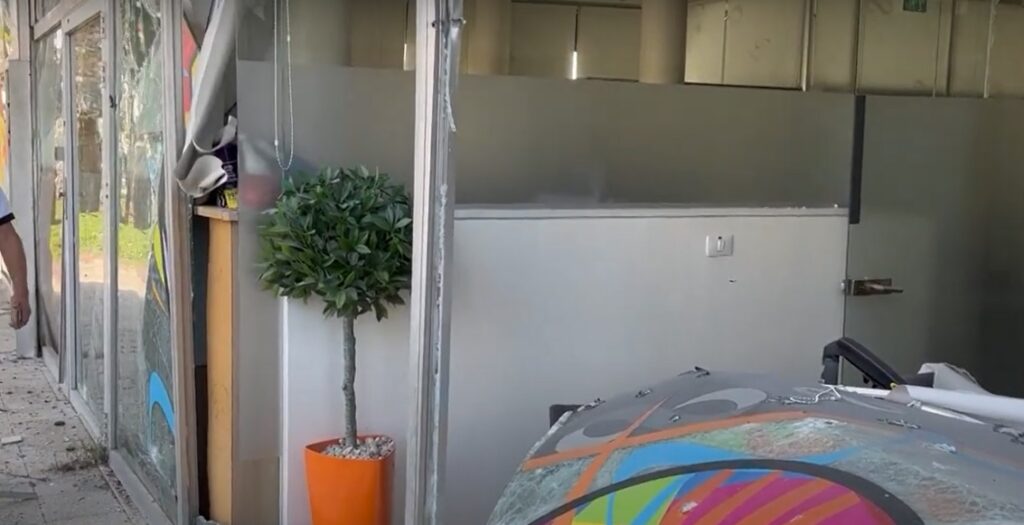Introduction
The Middle East is no stranger to conflict, and tensions have once again flared up as Lebanon launches rockets towards Israel. The situation is complex and multi-faceted, with historical, political, and religious factors at play. In this article, we’ll take a closer look at the latest developments, what’s causing the conflict, and what it could mean for the region.
Lebanon Rockets Israel:
Latest Developments As of April 6, 2023, Lebanon has launched several rockets towards Israel, with reports indicating that at least one hit the Israeli city of Haifa. Israel has responded with airstrikes on Lebanon, including targeting areas near Beirut. The situation is fluid, and both sides have warned of further escalation.
What’s Causing the Conflict?
The conflict between Lebanon and Israel is rooted in a long history of tensions between the two countries. Some of the key factors contributing to the current situation include:
- Hezbollah: The Lebanese militant group Hezbollah has close ties to Iran and has been a major player in the region for decades. Hezbollah has launched attacks on Israel in the past and is believed to have been involved in the recent rocket attacks.
- Palestinian Issue: The Israeli-Palestinian conflict has been a major source of tension in the region for decades, and many Lebanese support the Palestinian cause. Some believe that the recent rocket attacks are a response to Israel’s continued occupation of Palestinian territories.
- Political Instability: Lebanon has been facing a major political crisis in recent years, with a struggling economy, corruption, and sectarian divisions. The current government is seen as weak and ineffective, and some believe that the rocket attacks are an attempt to distract from these issues.
What Could the Conflict Mean for the Region?
The conflict between Lebanon and Israel has the potential to escalate into a larger regional conflict. Some of the potential consequences could include:
- Increased Violence: If the conflict continues to escalate, it could lead to a wider war in the region, with other countries becoming involved.
- Humanitarian Crisis: The conflict could lead to displacement and suffering for civilians on both sides, as well as exacerbating existing humanitarian issues in the region.
- Economic Impact: The instability caused by the conflict could have a negative impact on the region’s economies, including through disruptions to trade and investment.
Is this the first time that Lebanon has launched rockets towards Israel?
No, there have been several incidents in the past where Hezbollah, the Lebanese militant group, has launched rockets towards Israel.
Why does Hezbollah have ties to Iran
Hezbollah is a Shiite Muslim organization, and Iran is a predominantly Shiite country. Iran has provided support to Hezbollah over the years, including funding, weapons, and training.
What is the Israeli-Palestinian conflict
The Israeli-Palestinian conflict is a long-standing dispute over land and sovereignty in the region. Israel was created
A significant event has taken place in the Middle East as rockets were fired from Southern Lebanon into the Galilee region in Northern Israel, causing damage and a few reported injuries.
Reports suggest that dozens of missiles were fired, with some being intercepted by Israel’s Iron Dome missile defense system. However, the exact number of missiles is not yet known. There is a heavy presence of Israeli Jets up on the northern border, and reports indicate that the Israelis have already started responding using artillery fire.
The timing of the attack appears to be related to the recent events at the Al-Aqsa Mosque compound. Israeli forces went in to remove Palestinian worshipers, causing uproar around the Muslim world.
Another possible reason for the attack is that Israel has been carrying out a series of airstrikes against targets in neighboring Syria in recent days. It is possible that Palestinian factions in southern Lebanon were behind the rocket fire, but it is unlikely that they acted without the knowledge, if not the tacit approval, of Hezbollah, who control Southern Lebanon.
This event raises the possibility of a dangerous new front opening up if Hezbollah and Israel engage in further conflict. If this situation escalates, it could lead to a full-blown conflict, which would be disastrous for the region.

